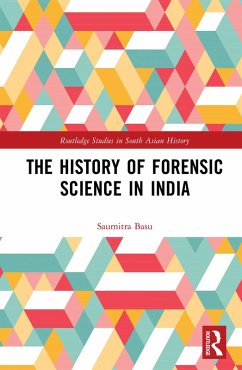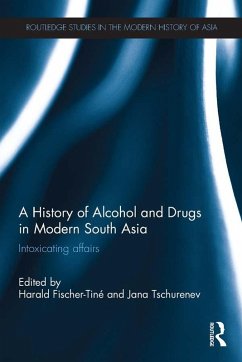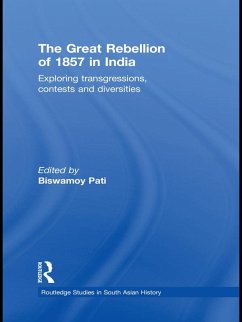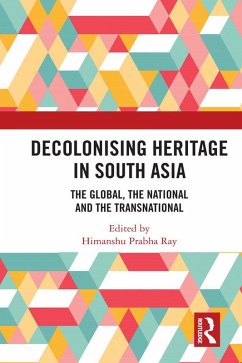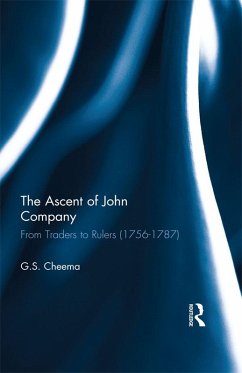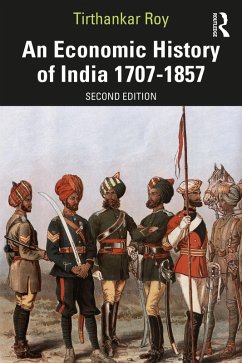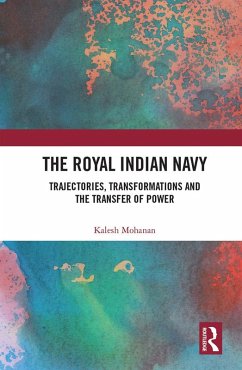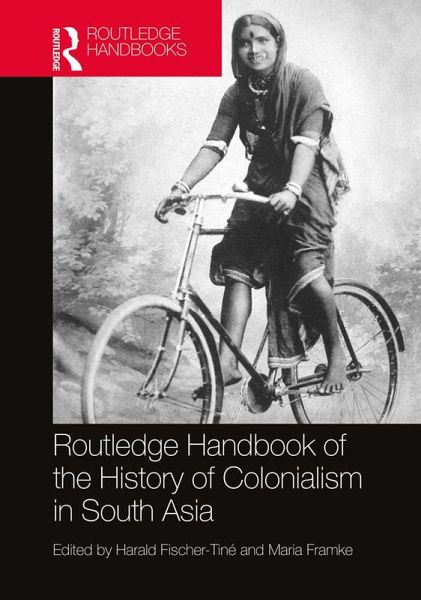
Routledge Handbook of the History of Colonialism in South Asia (eBook, PDF)

PAYBACK Punkte
23 °P sammeln!
The Routledge Handbook of the History of Colonialism in South Asia provides a comprehensive overview of the historiographical specialisation and sophistication of the history of colonialism in South Asia. It explores the classic works of earlier generations of historians and offers an introduction to the rapid and multifaceted development of historical research on colonial South Asia since the 1990s. Covering economic history, political history, and social history and offering insights from other disciplines and 'turns' within the mainstream of history, the handbook is structured in six parts:...
The Routledge Handbook of the History of Colonialism in South Asia provides a comprehensive overview of the historiographical specialisation and sophistication of the history of colonialism in South Asia. It explores the classic works of earlier generations of historians and offers an introduction to the rapid and multifaceted development of historical research on colonial South Asia since the 1990s. Covering economic history, political history, and social history and offering insights from other disciplines and 'turns' within the mainstream of history, the handbook is structured in six parts:
The editors have assembled a group of leading international scholars of South Asian history and related disciplines to introduce a broad readership into the respective subfields and research topics. Designed to serve as a comprehensive and nuanced yet readable introduction to the vast field of the history of colonialism in the Indian subcontinent, the handbook will be of interest to researchers and students in the fields of South Asian history, imperial and colonial history, and global and world history.
- Overarching Themes and Debates
- The World of Economy and Labour
- Creating and Keeping Order: Science, Race, Religion, Law, and Education
- Environment and Space
- Culture, Media, and the Everyday
- Colonial South Asia in the World
The editors have assembled a group of leading international scholars of South Asian history and related disciplines to introduce a broad readership into the respective subfields and research topics. Designed to serve as a comprehensive and nuanced yet readable introduction to the vast field of the history of colonialism in the Indian subcontinent, the handbook will be of interest to researchers and students in the fields of South Asian history, imperial and colonial history, and global and world history.
Dieser Download kann aus rechtlichen Gründen nur mit Rechnungsadresse in A, B, BG, CY, CZ, D, DK, EW, E, FIN, F, GR, HR, H, IRL, I, LT, L, LR, M, NL, PL, P, R, S, SLO, SK ausgeliefert werden.





